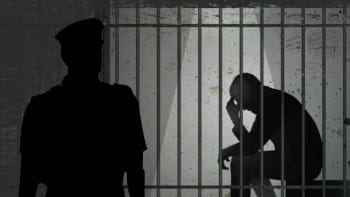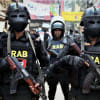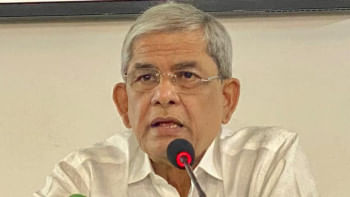Rab must be rebuilt from the ground up

There is no doubt that reforming the Rapid Action Battalion (Rab) has become an urgent priority. After over a decade and a half of courting allegations of rights abuses, extrajudicial killings, and enforced disappearances—to the point of incurring US sanctions in 2021—Rab has undeniably lost public trust. And a mere rebranding or restructuring won't restore it. Against this backdrop, a report by this daily has revealed that Rab authorities are considering changing its name, logo, and uniform, as well as drafting a new law to regulate its operations. Currently, as a specialised unit of police, it operates under the police ordinance.
But such cosmetic changes cannot bring about sustainable reform. The police force itself serves as a cautionary example. Like police, Rab was not solely responsible for the crimes it committed as it operated at the behest of an autocratic regime. According to Ain o Salish Kendra, Rab was involved in at least 467 crossfires between 2015 and 2023. Its image as a "death squad" owes as much to its poor accountability mechanisms as to the vested interests of the then-ruling camp. So, how can we prevent future abuses of Rab when political power so often overrides legal safeguards? Can Rab be reformed without addressing our underlying political culture?
This is a question not only for the interim government but also for all major political parties. For now, several rights advocates have suggested disbanding Rab and rebuilding it from the ground up. This would require not just reshaping its mission and operational guidelines but also putting all personnel through a rigorous orientation process to instil respect for human rights and lawful procedure. Ensuring justice for the officers guilty of past abuses would also set a critical precedent for future compliance.
Rab's recruitment model presents another key issue, as it involves seconding officers from different forces including police, army, navy, and air force. This setup places military officers in potentially compromising roles, raising concerns about not only the viability of Rab's mission but also the integrity of the military itself. Equally important is the matter of oversight. Rab's accountability mechanisms must be totally rebuilt to ensure that its errant officers cannot evade justice, regardless of their political affiliations.
Ultimately, we must remember that true reform requires transformation from within, and this is what we should be aiming for. Without genuine efforts from all stakeholders, we risk only going through the motions of reforms that may put the public at risk again in the future. We owe it to the past victims of Rab and to the future of law enforcement in Bangladesh to rebuild Rab with a clear mandate for justice and human rights.


 For all latest news, follow The Daily Star's Google News channel.
For all latest news, follow The Daily Star's Google News channel. 











Comments